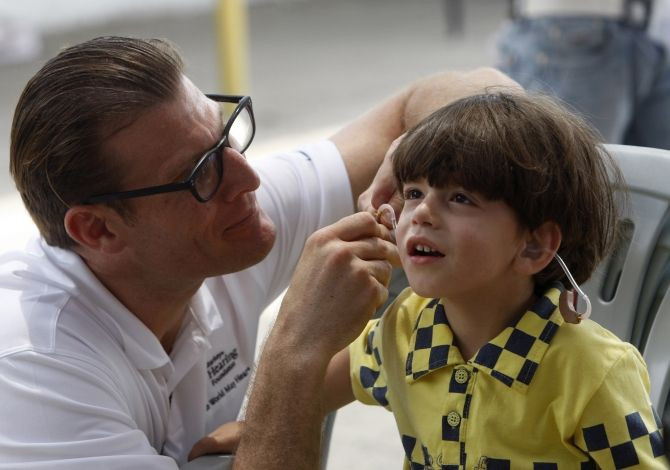HIV-Exposed Children May Suffer Hearing Loss

Children exposed to HIV before birth may be at high risk for developing hearing loss by the age of 16.
A study by National Institutes of Health (NIH) said that the risk of hearing loss was 200 to 300 times higher compared to national averages of hearing loss among other children.
According to researchers, an estimated 9 to 15 percent of HIV-infected children and 5 to 8 percent of children of mothers who had HIV infection suffered from hearing loss.
Medical Daily had reported another NIH led study earlier this year that said that children who are exposed to HIV are more likely to suffer from language impairments.
"Children exposed to HIV before birth are at higher risk for hearing difficulty, and it's important for them—and the health providers who care for them—to be aware of this," Dr. George K. Siberry of the Pediatric, Adolescent, and Maternal AIDS Branch of the Eunice Kennedy Shriver National Institute of Child Health and Human Development (NICHD) said in a statement.
The age of children evaluated in the present study was between 7 and 16 years. They were evaluated on three parameters: physical structure of ear, middle ear function and the ability to hear tones on a microphone.
"If parents and teachers know the child has a hearing problem, then they may take measures to compensate in various communication settings, such as placement in the front of the classroom or avoiding noisy settings," said Howard Hoffman, director of the Epidemiology and Statistics Program at the National Institute on Deafness and Other Communication Disorders (NIDCD) in a news release.
In the year 2006, HIV-positive women gave birth to about 8,700 infants in the U.S. This was an increase of about 30 percent since the year 2000, reports NAM.
"Although ear infections are more common among children with HIV, these do not appear to be the reason their hearing is more likely to be compromised," said Torre in a news release from NIH.



























